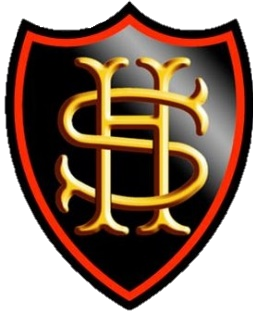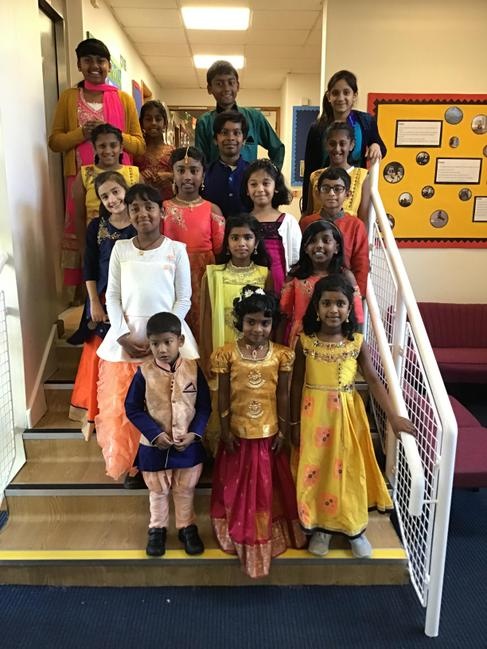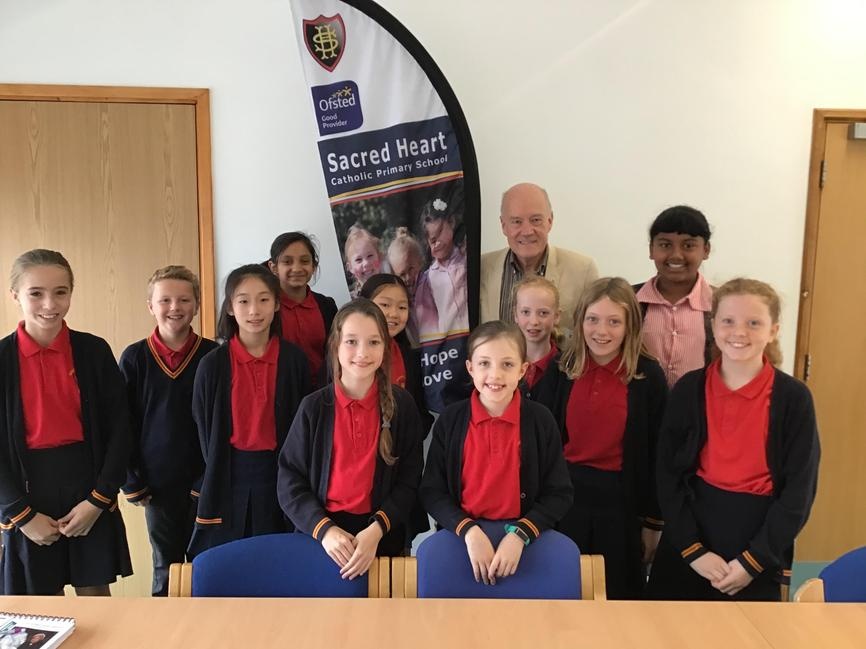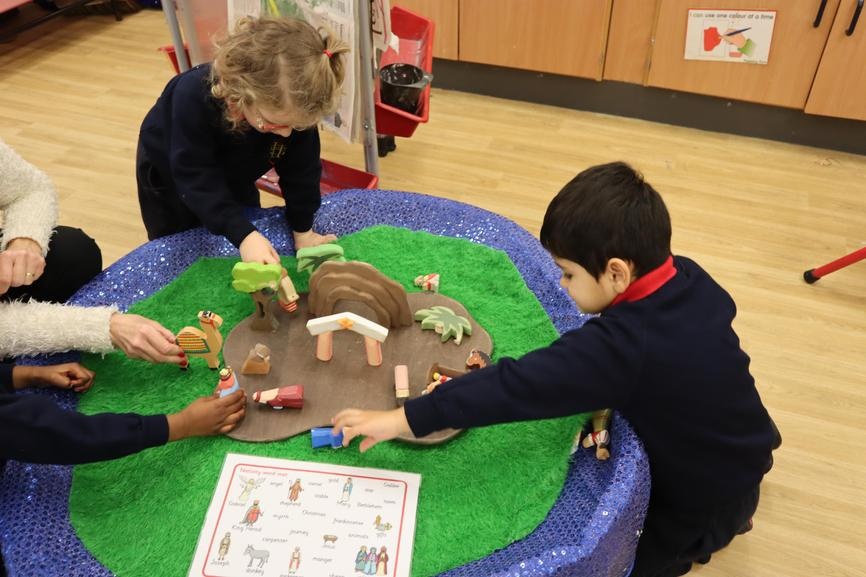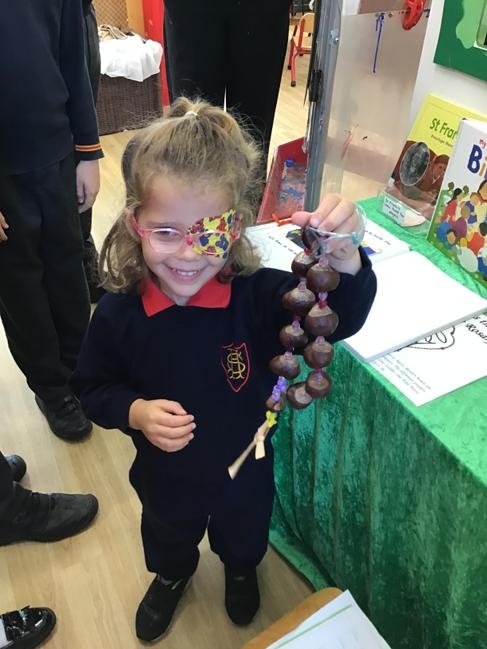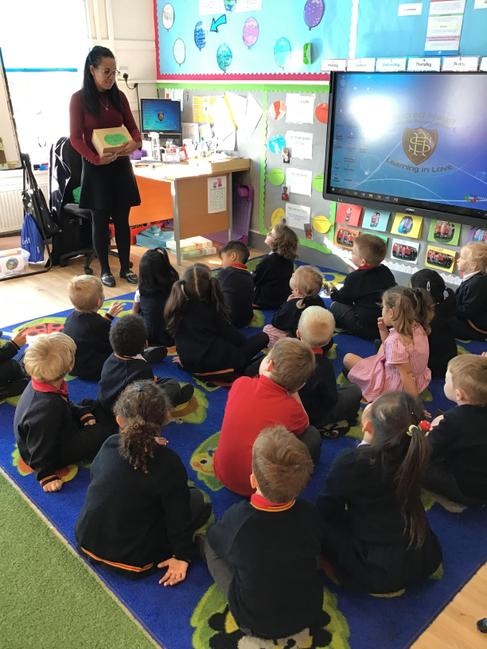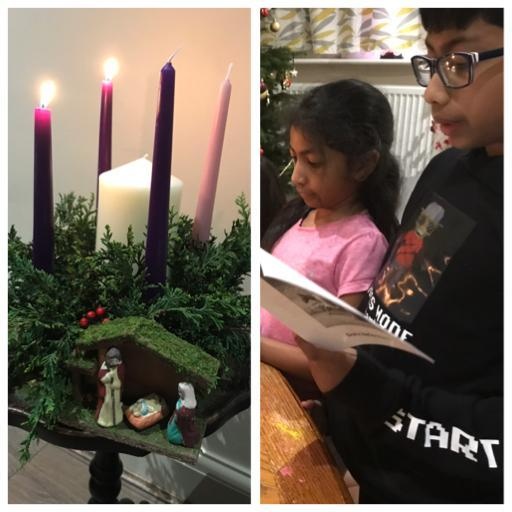RE
Come and See Curriculum Overview including World Faiths
Sacred Heart Catholic Primary School – Curriculum Intent for REWe strive to nurture a love of learning through excellence in learning, pastoral care and faith formation. |
||
|
Faith |
Hope |
Love |
|
Our curriculum:
|
Our curriculum:
|
Our curriculum:
|
Sacred Heart Catholic Primary School – Curriculum Implementation for REWe strive to nurture a love of learning through excellence in learning, pastoral care and faith formation. |
||||||||||||
|
RE is a core subject and an integral part of life and learning at Sacred Heart. 10% of our weekly timetable is dedicated to the teaching and learning of Religious Education. The Religious Education Curriculum Directory (RECD) is followed which can be viewed here: https://www.catholiceducation.org.uk/schools/religious-education/item/1000034-religious-education-curriculum-directory In order to meet the requirements of the curriculum, we follow the Come and See Primary Religious Programme for schools, which is approved by the Catholic Bishops of England and Wales. The programme is implemented in Nursery through to Y6 which is taught through a series of nine topics exploring 3 themes which are Church, Sacrament and Christian living.
|
World Faiths:
We also teach the children about other world religions during the academic year. They are encouraged not to simply learn facts about other religions but also reflect upon them and gain insights from them.
Driver Words:
To strengthen progression and challenge, driver words are used for lesson objectives, activities and differentiation. These driver words support the pitching of lessons and allow children to be challenged effectively within lessons
|
Knowledge and Understanding (learning about religion) |
Engagement (learning from religion) |
|||||||||
|
|
Y4 upwards |
Demonstrate Insight |
|
Explain |
|
|
Engage And Respond |
|
|
Y2/Y3 |
Make Links |
|
Y1/Y2 |
Ask |
|
EYFS/Y1 |
Talk About |
Godly Play:
Godly Play is a Montessori approach which guides the children’s learning. Whilst we do not fully adopt the Godly Play approach, the method of storytelling through actions and materials deepens the impact of storytelling in EYFS and KS1. For pupils with SEN or EAL
Throughout the year, additional experiences in and out of school are used to deepen the impact of the RE curriculum:
- Advent and Lenten Retreats
- Advent Door competition
- Travelling Crib and Travelling Cross
- Sacred Heart Feast Days
- NATRE Spirited Arts Competition (Deanery and Nationwide)
Teaching is regularly supported strengthened through staff training delivered by the RE lead or Diocesan advisors.
Standards in books are monitored by the RE lead and SLT.
Books are moderated in school with the RE lead and SLT as well as at Deanery and Diocesan events.
Sacred Heart Catholic Primary School – Curriculum Impact for RE
We strive to nurture a love of learning through excellence in learning, pastoral care and faith formation.
Impact of our curriculum is measured through qualitative and quantitative data.
Teachers use assessment for learning strategies to evaluate, adjust and maximise the impact on pupil outcomes.
Attainment and progress in house as well as statutory data is monitored closely by the curriculum and subject leads. Termly progress meetings identify pupils who need additional support. These are also used strategically to identify future CPD.
Qualitative data in the form of pupil voice or from pupil, parent and staff surveys are also used to measure impact.
Section 48 Inspection Judgment – Outstanding, Nov 2019.
“High quality teaching and learning in Religious Education results in very good pupil outcomes. All groups of pupils make good progress and achieve well. Pupils are interested and enthusiastic. They are inquiring and reflective learners and are keen to do well. They clearly enjoy their Religious Education lessons and can relate these to their own lives.” – Section 48 inspection, Nov 2019
Pupil voice:
Pupils understand the importance of the ongoing cycle of improvement
My teacher writes questions in my book to answer so my work gets better.” Y3 pupil.
“In my book, our teacher highlights things we have done in our books. I use a purple pen to add more information. We can help each other with questions to improve.” Year 5 pupil.
2019 data impact
- Attainment is outstanding because whole school data shows that 83% of pupils achieve at least expected attainment with 26% of pupils achieving GDS.
- Almost all pupils achieve above average attainment using diocesan and/or national data where available. (Outstanding criteria)
- Whole school attainment in RE is in line with data for English and Maths.
- Progress in RE is outstanding, this is because almost all pupils (including those with SEN), from their varied starting points, make good progress in each key stage, with many achieving outstanding progress. (S48 outstanding criteria)
- Deanery and Diocesan moderation of books show that almost all books are equal to outstanding schools in the area.
- Diocesan advisors, show attainment to be good in 2018 as teachers have ‘high expectations’ and ‘developmental marking is insightful and focused’ (Diocese monitoring visit, 2018). Books and data have improved since then.
- As attainment is outstanding and progress is outstanding, therefore Teaching and Learning of RE in our SEF can be judged as ‘outstanding’.
Parents' and carers' right to widraw children from RE lessons
Voluntary aided schools in England and Wales must ensure that religious education is provided as part of the school’s basic curriculum. In Catholic schools this is done accordance with the teachings, doctrines, discipline and norms of the Catholic Church. Academies in England are required by their funding agreement and Articles of Association to comply with similar requirements. Similarly, in state funded schools England and Wales are required by law to take part in an act of collective worship on each school day. In Catholic schools this is dome in accordance with the rites, practices, disciplines and liturgical norms of the Catholic Church.
Parents of pupils in Voluntary Aided schools are permitted to request that their child is withdrawn from receiving all or part of religious education and/or collective worship given at the school and any such request shall stand until such time that the parent’s request is withdrawn. More information about this is available below.
